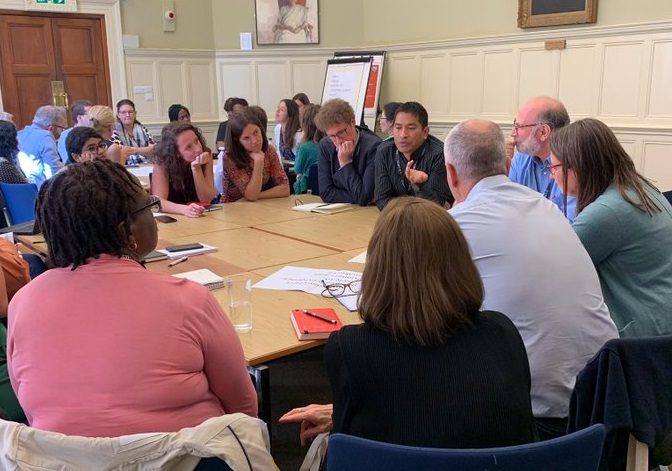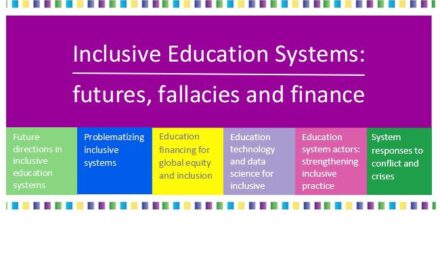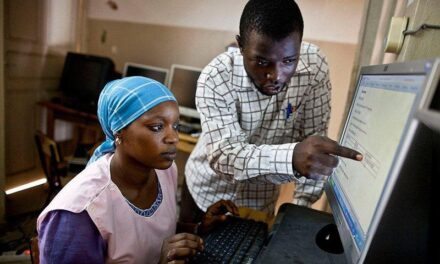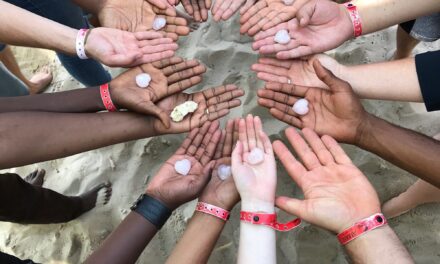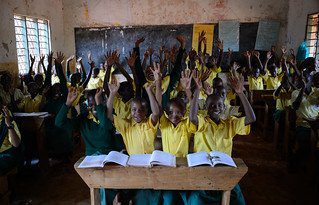This blog was written by Elizabeth Tofaris, University of Cambridge, on behalf of the Impact Initiative for international development research. It was originally posted on the Impact Initiative website on 25th September 2019 and is based on discussions at a workshop at the September 2019 UKFIET conference on inclusive education systems.
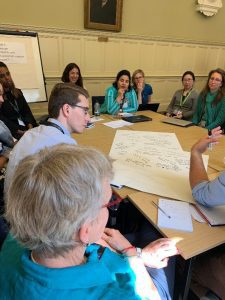 The Impact Initiative for International Development Research led a practical workshop at the 2019 UKFIET conference to give delegates a better understanding of the needs, processes and requirements from key stakeholders to translate evidence into impact. The UKFIET Conference provides an opportunity every two years for universities, non-governmental organisations, policymakers and consultancy groups to share ideas, knowledge and expertise on education and international development.
The Impact Initiative for International Development Research led a practical workshop at the 2019 UKFIET conference to give delegates a better understanding of the needs, processes and requirements from key stakeholders to translate evidence into impact. The UKFIET Conference provides an opportunity every two years for universities, non-governmental organisations, policymakers and consultancy groups to share ideas, knowledge and expertise on education and international development.
The session brought more than 50 researchers (including a number of grant holders on the ESRC-DFID Raising Learning Outcomes programme) and policy actors together to explore the role of evidence in informing policy and practice in low-resource settings.
This session began with Rukmini Banerji, CEO of Pratham Education Foundation, giving her perspective on why translating evidence into policy and practice is important, drawing on specific examples from research with which the Indian-based NGO, Pratham, has engaged. She gave an interesting anecdote about using a village report card in Uttar Pradesh to understand if children are attending school and if they can read and write; and her experiences conducting surveys in small rural villages.
Following the opening discussion, delegates split into three groups to explore:
- the importance of networks and relationships to support impact;
- how researchers can communicate evidence more effectively; and
- the types of evidence that can support the documenting of impact.
By facilitating stimulating discussion, it was an opportunity for researchers and NGOS, donors and research funders to identify how they can work together to translate evidence into policy and practice.
Communicating evidence effectively to non-academic stakeholders
This group discussed the value of communicating research to those who will use or benefit from it. Delegates were challenged to think about how to develop core messages about their research in short and succinct ways – or as ‘elevator’ pitches – with Colin Bangay (Senior Education Advisor of DFID Sierra Leone), giving feedback to those brave enough to pitch! When thinking about tailoring the core message to specific audiences, researchers were encouraged to:
- Use plain language;
- Demonstrate evidence in action;
- Try to understand the policymakers point of view;
- Build relationships and trust before communicating research;
- Include concrete facts and figures;
- Be positive about achievements of policy actors, before identifying what needs to be done.
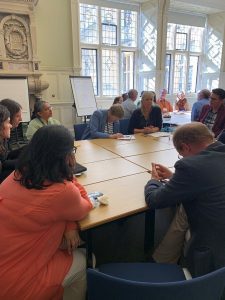 In his blog, Colin Bangay considers whether researchers and policymakers can do more to ensure the other’s perspectives are taken on board.
In his blog, Colin Bangay considers whether researchers and policymakers can do more to ensure the other’s perspectives are taken on board.
Evidencing impact
This group considered the types of evidence that stakeholders want to see and respond most effectively to. A number of researchers gave examples of chance meetings with key decision makers; and the frustrations of evidence-uptake being influenced by social connections and interactions. Those giving feedback from a policy perspective encouraged researchers to think about the importance of timing when communicating evidence – and the benefit of evidence being presented in visual formats for those who were non-experts. The group agreed that research-users should not be treated as a homogenous group and – as repeatedly mentioned in other groups– the importance of knowing and understanding audience in their own contexts.
The importance of networks and relationships to support impact
Group 3 discussed how to identify and maintain relationships with non-academic audiences in order to support impact. The group considered how change happens in a particular context, whose knowledge counts and what kind of access research teams have to key decision makers. There was strong agreement that strengthening the linkages between research and policy depends on the development of strong relationships between networks of stakeholders; but a recognition that this is sometimes hindered by high staff turnovers and a lack of time, space and money. Some suggestions on opportunities to counteract these issues included:
- Engaging the same stakeholders persistently over the course of the research – taking stakeholders on the journey;
- Incentivise information sharing – finding a mutual agenda;
- Involving stakeholders directly in research activities – building relationships and encourage buy-in;
- Reaching out to – and understanding – audiences in their own context, acknowledging diversity and accessibility (for example – translating outputs into local languages);
- Understanding policymaker’s points of view and responding to the policy environment in which they operate.
We are grateful to Colin Bangay, Senior Education Adviser in Sierra Leone, Department for International Development; Christine Beggs, Senior Director, Global Monitoring and Research, Room to Read; and, Caroline Dyer, University of Leeds for being involved in the workshop and facilitating the group sessions.
Related resources
ESRC-DFID Raising Learning Outcomes in Education Systems booklet
The Impact Initiative seeks to connect policymakers and practitioners with the world-class social science research supported by the ESRC-DFID Strategic Partnership, maximising the uptake and impact of research from: (i) the Joint Fund for Poverty Alleviation Research, and (ii) the Raising Learning Outcomes in Education Systems Programme.

